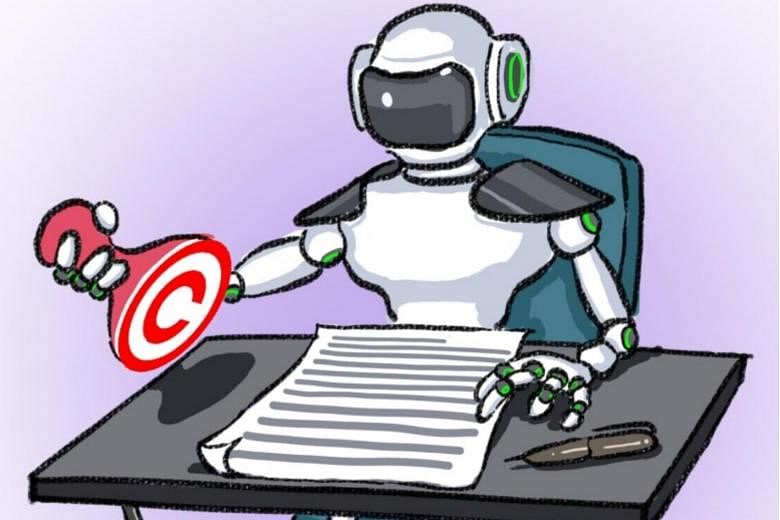BEIJING (CHINA DAILY/ASIA NEWS NETWORK) - Artificial intelligence (AI) has long been reported as being able to compose poems and write articles like humans.
So, is AI's "literary" output protected by the copyright law?
A court in Nanshan district of Shenzhen ruled that a report written by Tencent's AI program, Dreamwriter, enjoys copyright, and a website, "Home of online loans" - which posted the whole article online - has violated the law.
Some media reports called it "the first domestic case involving AI's copyright".
But this is not wholly correct. According to the ruling, the article in question was the fruit of intelligent labour put in by a writing team at Tencent, with AI used more like a tool.
Even then the case is no less significant in China's judicial history.
After all the judgement recognises the essential role AI could play in creating literary content and will hopefully encourage more developers to accelerate research and development to create AI that can write reports, and even encourage more media outlets to use AI to write articles for them.
AI technology is being tapped in a big way.
On March 9, Xinhua News Agency employed its first AI broadcaster, which could imitate human lip movement on screen while accurately reading out news reports.
Before that, Xinhua had installed an AI-run "media brain" that could sort news reports, submit them to different channels, monitor the whole process and collect feedback.
In so doing, it employed technologies like big data, cloud computing, AI and the Internet of Things.
In a nutshell, there is nothing a reporter or an editor can do that AI cannot.
While a majority of media outlets follow this trend, others have made use of the loopholes in the law, as currently there is no legal provision specifically protecting AI's copyright.
That's why the court ruling is rather important.
It will deter certain media outlets that hoped to make use of such loopholes to copy content.
Every copyright should be protected, be it owned by a human being or AI.
The writer is a columnist with the paper. China Daily is a member of The Straits Times media partner Asia News Network, an alliance of 24 news media organisations.

